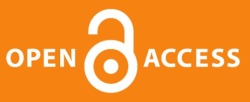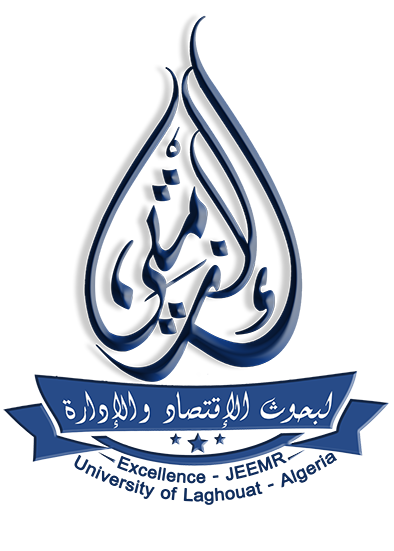Institutional quality and economic development in MENA region Comparative analysis
Abstract
For a long time, institutions were either ignored or taken for granted in the standard theory of economic growth. The new institutional theory defines the quality of institutions as a fundamental factor causing disparities in levels of economic development between countries.
Based on the results of the various empirical studies in this area, it appears that this theory is well founded. The purpose of this paper is to examine the characteristics of institutions and to identify their role in promoting economic growth and development. In this study, we have used data collected from international organisations, such as the World Bank and Transparency International, covering the period 2002 to 2020, mainly concerning Algeria and some selected countries in the MENA region, concluding with recommendations that could make a positive contribution in this area
References
2. Bank, W. (1997). World development report: The state in a changing World. World Bank.
3. Becherair, O. (2016). Corruption et croissance économique une approche économétrique sur les données de l'Algérie. European Scientific Journal, 12(7), 434-445.
4. Drangovska, T., & Antovska-Mitev, M. (2022). Institutions and economic growth:Comparative analysis North Macedonia and selected countries from the region. Southeast European Review of Business and Economics, 8-36.
5. Hassane , H. S., & Pailloix, C. (2003). De l’économie du développement à l’économie du changement institutionnel. Colloque International, Développement, Croissance et Institutions, (pp. 1-20).
6. Islam, R. (2002). Bulding institutiins for markets. World Bank.
7. Jütting, J., Drechsler, D., & De Soysa, I. (2006). Traditions et développement. (OCDE, Éd.) Repères(34), 1-2.
8. Kapur, D., Webb, R., & al. (2000). Governance-related conditionalities of the internatiional financial institutons . UN.
9. Kaufmann, D., Kraay, A., & Mastruzzi, M. (2011). The Worldwide Governance Indicators: Methodology and Analytical Issues. Hague Journal on the Rule of Law, 220-246.
10. Mauro, P. (1995, August). Corruptiion and growth. The Quarterly Journal of Economics, 110(3), 681-712.
11. Merad Boudia, H. (2015, 09 16). L’impact du changement institutionnel dans un cadre detransition sur le comportement des entreprises Algériennes. Revue d'études sur les institutions et le développement, 2(1), 1-27.
12. North, D. C. (1991). Institutions. Journal of economic perspectives, 5(1), 97-112.
13. North, D. C., & al. (1990). Institutions, institutional change and economic performance. Cambridge University Press.
14. Rodrik, D., & Subramanian, A. (2003). The primacy of institutions. Finance and development, 40(2), 31-34.
15. Snowdon, B., & Vane, H. R. (2005). Modern macroeconomics: Its origins, development and current state. Edward Elgard Pulishing.
16. Stein, H. (2008). Beyond World Bank Agenda. University of Chicago Press.
17. Talahit, F. (2000). Economie administrée, corruption et engrenage de la violence en Algérie. Revue Tiers Monde, 41(161), 49-74.
18. Tanzi, V. (2003). Corruption, governmentalactivities, and markets . Finance & development, 24-26.








